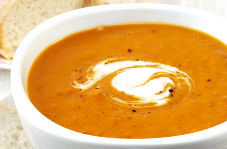How To Improve Diet With The Help Of Fiber
 0
0
 2015-11-03
2015-11-03

Fiber is one of the lesser known aspects of a diet. It isn’t really given very much importance and as a result people don’t consume as much as they should. This is a real shame because sufficient consumption of dietary fiber gives your body a real boost in health.
Fiber offers a multitude of benefits, which we’ll come to see. Only small quantities of fiber are required for us every day, and if you meet these daily requirements, you can consider yourself in a much better position healthwise.
But What Is Dietary Fiber?
Fiber is the food your body processes but can’t digest. It goes by different names, like roughage and bulk. As a child, you may have been told that it is important to get some roughage into your system. Well, whoever told you that was right. It passes right through your stomach, intestines and out the exit. This ability to pass intact is why it promotes healthy bowel movements.
There are two types of fibers: soluble and insoluble fibers. The distinction is simple: fiber which dissolves in water is called soluble fiber and that which doesn’t is called insoluble fiber. Both types of fibers have their benefits and it’s good to have some both in your diet.
Some foods contain both soluble and insoluble diet, offering the whole range of fiber benefits in one package. Fiber’s two greatest benefits, regulating blood sugar levels and promoting bowel movements, is offered by soluble and insoluble fiber respectively. The case for the inclusion of dietary fiber in your diet is building.
Benefits
Dietary fiber has many, many benefits that is good for everyone. There really isn’t anyone to whom you can’t recommend fiber.
As we mentioned, soluble fiber helps regulate blood sugar levels in the body. This is especially good for diabetics, but it is also good for the young individual who hasn’t yet been hit by the debilitating disease. It keeps your blood sugar levels in check and prevents a sudden rise. Other foods, like white bread, causes your blood sugar levels to spike, which if it happens frequently enough over time, leads to diabetes. Which in turn leads to many devastating physical changes.
Insoluble fiber will get your bowels moving. If you’re suffering from constipation, a steady increase in dietary fiber will help get things moving along. It is important to increase your fiber consumption slowly, because too much will leave you feeling bloated. Start with a few spoonfuls of something like oats and move upwards from there. The exact figure causes much debate, but somewhere in the region of 30-35 grams of dietary fiber is what you should be aiming for.
There’s another brilliant benefit to dietary fiber: it is great for maintaining weight. Dietary fiber is an extremely filling substance, it has a satiating effect. You’ll feel full from even a small portion of fiber, which means you’re less likely to head for the snack jar and gorge on unhealthy food.
The extravagance doesn’t end there. Fiber reduces your cholesterol levels as well! It reduces the ‘bad’ cholesterol in your body, which is a very important benefit. It is also believed that fiber reduces inflammation and blood pressure. This makes it a food source that is very beneficial to the heart.
Sources
Fortunately, there are plenty of good sources from which you can obtain your dietary fiber requirements.
The best of these, for its availability and affordability, is Oatmeal. Oatmeal is a great breakfast option that offers you a lot of energy for the day and meets every requirement. It contains both soluble and insoluble fiber, which means you ft all the benefits fiber has to offer.
Brown Rice is another source of fiber. Substitute white rice with brown rice and you’ve got a staple that is much more beneficial.

If you like pasta, make sure you use whole wheat pasta. It is far healthier than its counterparts.
Fiber is a much ignored but very necessary part of your diet. Make sure you include some in your diet.

 Joybynature.com Team
Joybynature.com Team


